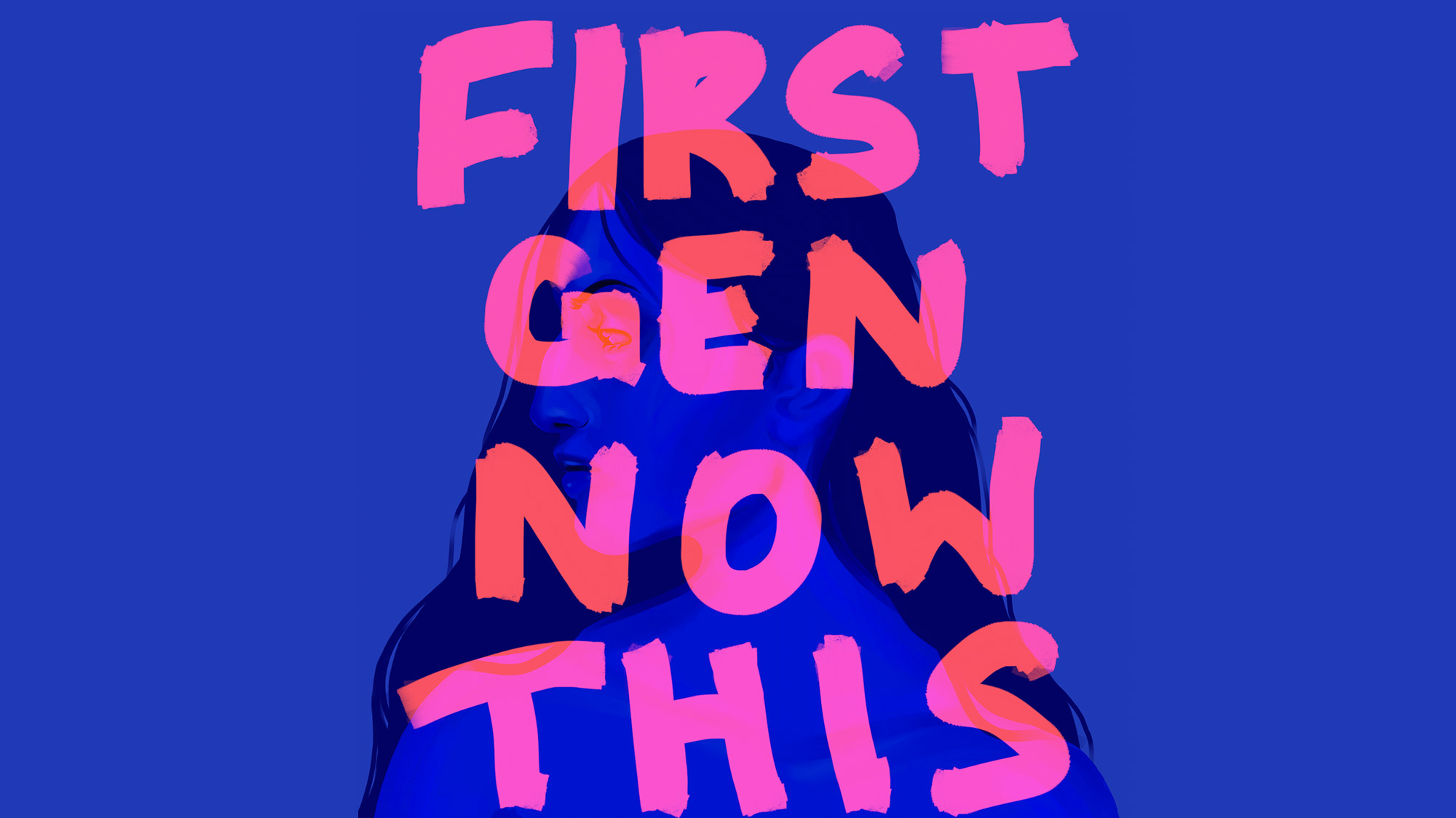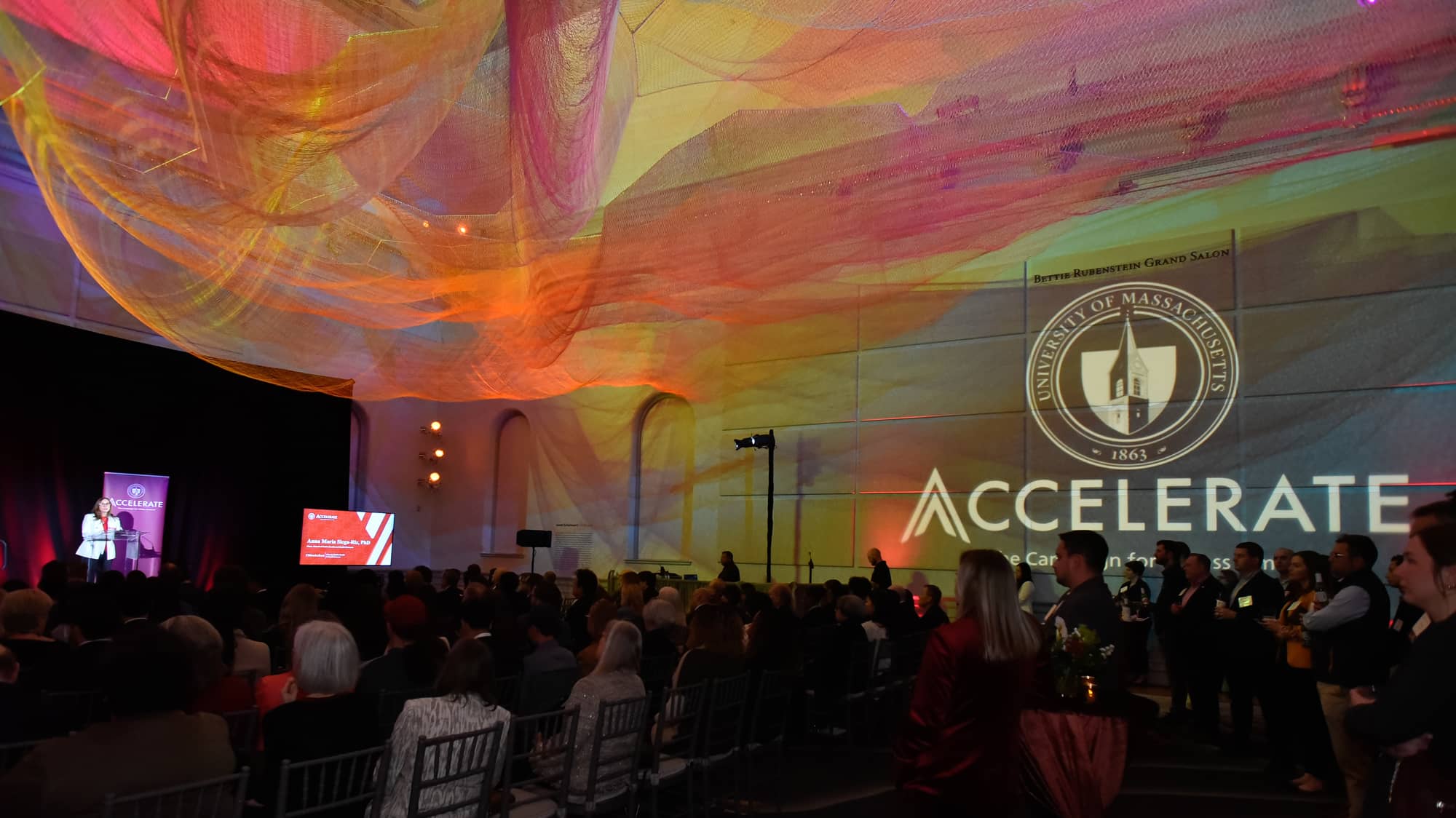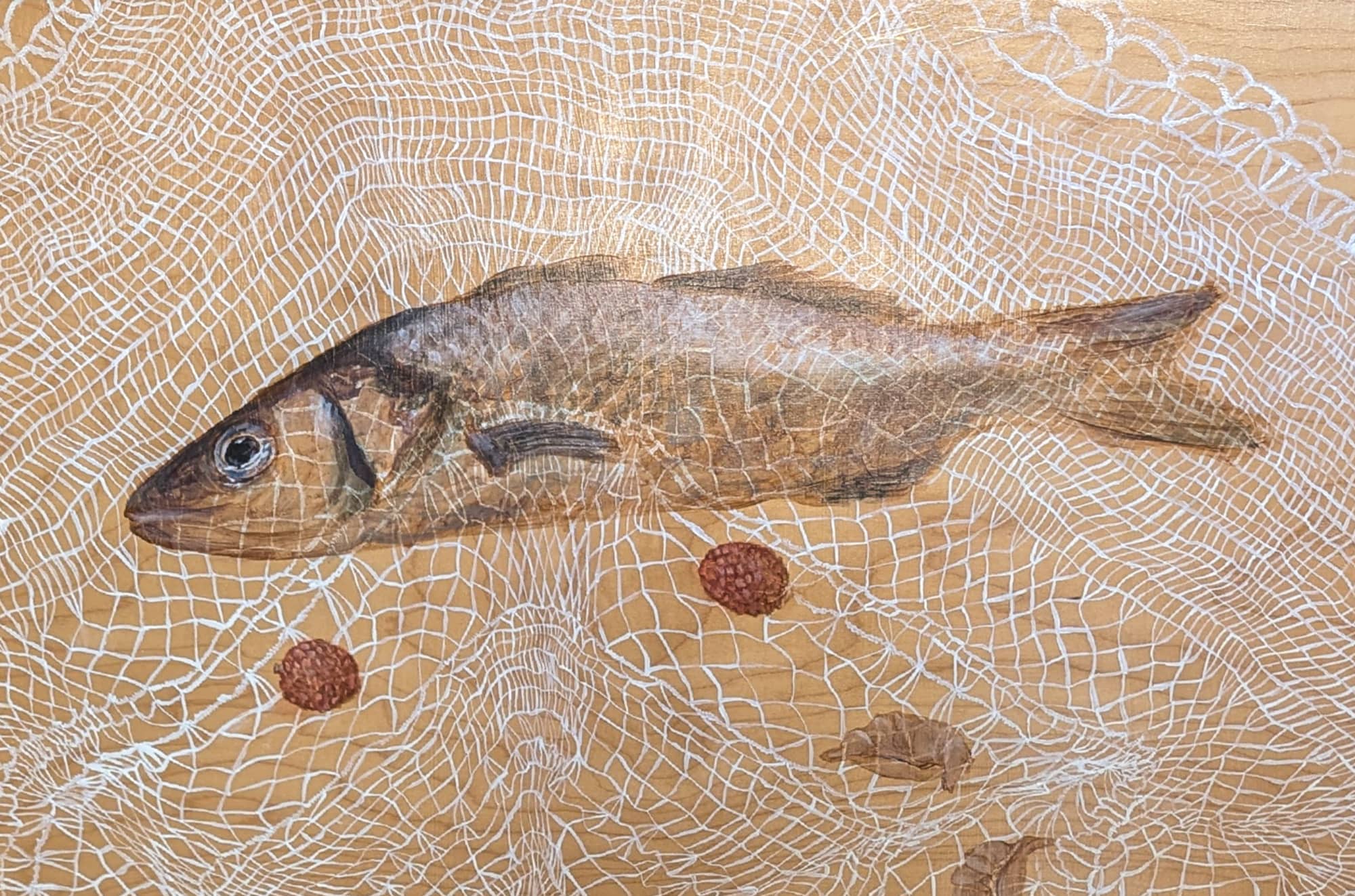Finalists from the Graduate School’s Three-Minute Thesis (3MT) Competition talk about the opportunities for both academic and professional development at UMass Amherst.
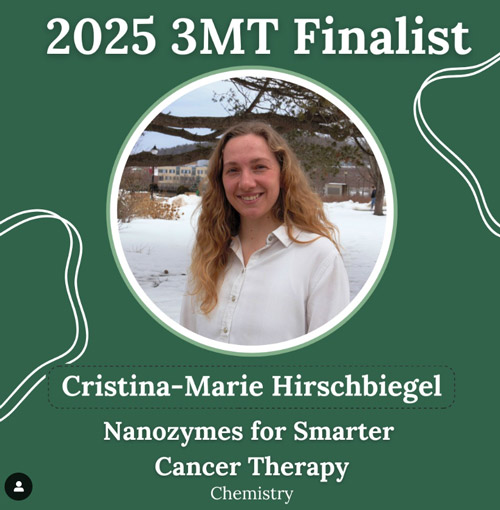 When Cristina-Maria Hirschbiegel, a doctoral candidate in chemistry, won the UMass Amherst Graduate School’s 2025 Three-Minute Thesis (3MT) competition in early March, her ambition to take her research beyond individual achievement in the laboratory was on full display.
When Cristina-Maria Hirschbiegel, a doctoral candidate in chemistry, won the UMass Amherst Graduate School’s 2025 Three-Minute Thesis (3MT) competition in early March, her ambition to take her research beyond individual achievement in the laboratory was on full display.
The competition was also an exhibition of the Graduate School’s focus on preparing students to make an impact on the world around them.
The 3MT competition challenges graduate students to describe their research to the public in an engaging manner, using non-technical language, in three minutes or less.
Hirschbiegel’s presentation, “Nanozymes for Smarter Cancer Treatment,” explained her use of special molecules that activate cancer drugs only at the site of treatment, resulting in significantly fewer side effects than traditional chemotherapy. She went on to present her work at the Northeastern Regional 3MT competition in April, where she also won first place.
“In my lab, almost every year, we have someone participating,” she says. “When I watched a good friend present, I knew I wanted to do it. I think we owe it to non-scientists to explain our research.”
Mansi Maheshwari, who is pursuing a master’s degree in computer science, agrees. 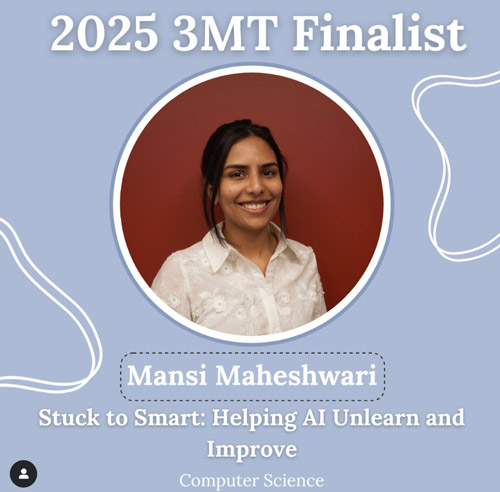 Her work as a research assistant in UMass Amherst’s internationally recognized Autonomous Learning Laboratory speaks directly to the public’s interest in better understanding and improving artificial intelligence.
Her work as a research assistant in UMass Amherst’s internationally recognized Autonomous Learning Laboratory speaks directly to the public’s interest in better understanding and improving artificial intelligence.
“The idea of communicating your research to a non-technical audience was really interesting to me because if you can understand what somebody is doing in three minutes without any jargon, you’re likely to be more interested in it,” she says. “After my speech, when I went around the room talking to people, they told me they were really able to understand how the AI works and what it does.”
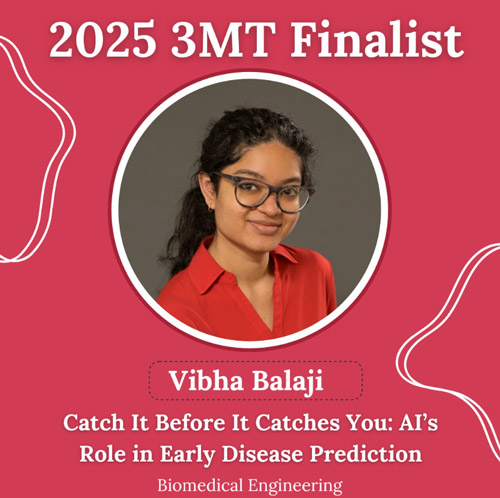 “I think I definitely learned how to think about my research from a totally different point of view through 3MT,” says Vibha Balaji, a doctoral student in biomedical engineering, who uses artificial intelligence to better understand the progression of Alzheimer’s disease and cancer through medical imaging. “When you are doing the same thing every day you tend to get bogged down in the details. You need to take a step back sometimes and think about where your work is going.”
“I think I definitely learned how to think about my research from a totally different point of view through 3MT,” says Vibha Balaji, a doctoral student in biomedical engineering, who uses artificial intelligence to better understand the progression of Alzheimer’s disease and cancer through medical imaging. “When you are doing the same thing every day you tend to get bogged down in the details. You need to take a step back sometimes and think about where your work is going.”
The 3MT competition is just one of many opportunities graduate students have at UMass to hone their presentation skills and think more deeply about the real-world implications of their research.
“I’m truly grateful for my PhD experience at UMass Amherst,” says Jing Yi, who presented her work examining a protein that is a key regulator in how plants adapt to heat. 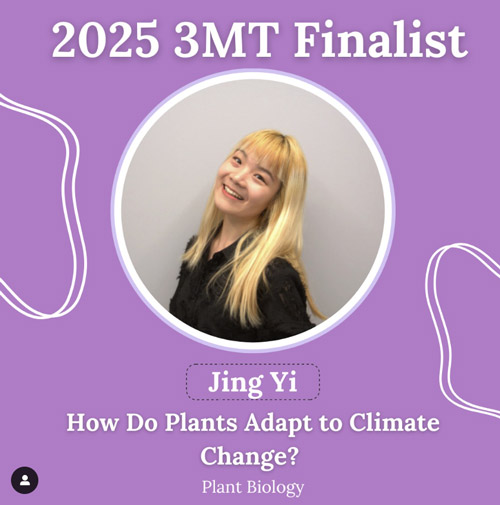 “I’ve had excellent opportunities to grow academically and professionally, such as attending seminars, joining professional development workshops, and engaging in a vibrant graduate student community.”
“I’ve had excellent opportunities to grow academically and professionally, such as attending seminars, joining professional development workshops, and engaging in a vibrant graduate student community.”
Jing also credits Professor Alice Cheung, who was elected to the National Academy of Sciences (NAS) in May, and Professor Hen-Ming Wu in the Plant Biology program with helping her envision a successful pathway within climate change adaptation research.
“They’ve shown me the value of hard work, resilience, and always striving to do better,” she says. “The training I’ve received under their guidance has been incredibly formative and will have a lasting impact on my future career.”
For English PhD candidate Nicole O’Connell, a teaching associateship in the Writing Program and additional on-campus jobs with the English Department and College of Humanities and Fine Arts Career Services have both supported and fueled her research, which focuses on the language and rhetoric universities use to promote career education.
“I am able to implement the career education strategies I learn about in multiple ways through my jobs and the different opportunities I have to interact with students.”
Because she is often engaging with career specialists and stakeholders outside of the English department, she tries to take advantage of Graduate School activities that focus on communicating research to general audiences.
“I have found ways to take it beyond my field,” she says, “and show people how this work can help everyone.”
As the Graduate School looks to increase support for advanced study in diverse disciplines across campus, it is crucial to continually raise awareness about the range of impactful research that graduate students help advance on a daily basis and the benefits they get from their involvement.
“I have realized that unless you do research, you are barely scratching the surface of your field,” says Maheshwari. “The more I engage with the research, the more I’m able to apply the concepts I learned in class, and that is very rewarding.”
Interested in helping graduate students at UMass Amherst advance their research? Make a gift to the Graduate Research Fellowship Fund today.
- Revolutionize Access
- Graduate School

